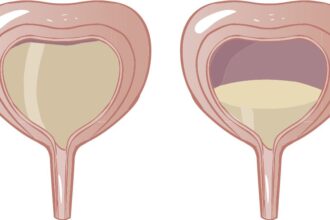 Recent studies have presented inconsistent and conflicting information regarding the use of calcium supplements, with some even suggesting they may increase the risk of cardiovascular disease.
Recent studies have presented inconsistent and conflicting information regarding the use of calcium supplements, with some even suggesting they may increase the risk of cardiovascular disease.
 Recent studies have presented inconsistent and conflicting information regarding the use of calcium supplements, with some even suggesting they may increase the risk of cardiovascular disease. After conducting a review of available research, a scientist from the UC San Francisco advises individuals to focus on a high-calcium diet rather than supplements to achieve proper calcium intake.
Recent studies have presented inconsistent and conflicting information regarding the use of calcium supplements, with some even suggesting they may increase the risk of cardiovascular disease. After conducting a review of available research, a scientist from the UC San Francisco advises individuals to focus on a high-calcium diet rather than supplements to achieve proper calcium intake.
“Osteoporosis may result from inadequate calcium intake and it’s quite common for certain segments of our population, such as the elderly, to consume less than the recommend amount,” Douglas C. Bauer, M.D., professor of medicine, epidemiology and biostatistics, stated in press release. “But a high calcium diet should be the preferred method to receive adequate amounts of the nutrient.”
Bone Health
Bone is living tissue which, just like cells, dies and is replaced in regular cycles. Although bone is in a constant state of renewal throughout the lifespan, bone mass is lost faster than it can be recreated as people age. Osteoporosis, which means ‘porous bones,’ occurs when the creation of new bone doesn’t keep up with the removal of old bone and so the bones become weak and brittle. In fact, bones can become so brittle that a fall or even mild stresses, such as coughing, can cause a fracture. Commonly, osteoporosis-related fractures occur in the hip, wrist, or spine. Adequate calcium consumption as well as weight-bearing physical activity — including walking, stair-climbing, and lifting weights — optimize bone mass and strengthen bones and so contribute to reducing the risk of osteoporosis later in life.
The body does not produce calcium on its own so it must be absorbed through diet. The necessary amount of this nutrient increases as people age. Generally, the Institute of Medicine recommends 1,000 mg per day for men and women between the ages of 19 and 50, then increases the amount to 1,200 mg per day for post-menopausal women over the age of 50 and men over the age of 70.
Understanding these dosage requirements, many people, especially older people, routinely take calcium supplements. Yet, researchers who studied the matter warned that this may not be the answer; in fact, it may do more harm than good. For their study, they analyzed data gathered from 388,229 men and women aged 50 to 71 years who participated in the National Institutes of Health–AARP Diet and Health Study. They discovered that a high intake of supplemental calcium was linked to an excess risk of cardiovascular disease deaths in men, though not in women. Meanwhile, high levels of dietary calcium intake did not produce such negative effects.
Dairy And Greens
Bauer recommends the old fashioned way: eating correctly. In particular, he suggests each of us consume enough dairy products, such as cheese, milk, and yogurt, as well as any food that is especially fortified with calcium. Although he points to kale, broccoli, and bok choy, many green vegetables, including spinach, okra, and snap peas, also contain solid amounts of calcium. A cup of boiled collard greens, for instance, may contain up to 266 mg of calcium. Nuts are another source of calcium as are sardines and salmon. An ounce of tofu boasts 105 mg of the bone-preserving nutrient.
Bauer’s instructions on maintaining bone health appear crystal clear, until he muddies the waters (somewhat) in a final analysis. “If it is not possible to consume enough calcium from the diet, the use of calcium supplements is most likely safe and not associated with cardiovascular outcomes,” he stated in a press release.
Sources: Xiao Q, Murphy RA, Houston DK, et al. Dietary and Supplemental Calcium Intake and Cardiovascular Disease MortalityThe National Institutes of Health–AARP Diet and Health Study. JAMA Internal Medicine. 2013.
Bauer DC. Calcium Supplements and Fracture Prevention. The New England Journal of Medicine. 2013.
(image: Christian Bauer/CC-BY-2.0)









